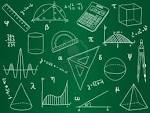Introduction:
The role of mathematics in Business decisions has very important in the process of managerial decision models and algorithms. To turn to the specific aspects of the quantitative decision making process, it is possible to recognize three distinct phases in every decision situation. First is carefully defined the problem, second is a conceptual model to be generated and third is the selection of the appropriate quantitative model they may lead to a solution. Lastly a specific algorithm is selected. Algorithms are the orderly delineated sequences of mathematical operations that lead to a solution. The algorithms generate the decision which is subsequently implemented managerial action program. The entire process is shown below:
Defined problem ——> Conceptual model —> Quantitative Model —-> Algorithms—-> Decision —- Action programs.
You are not being ripped off? You need to use math to calculate compound interest rates (to see how much your savings can grow). You also need to use math to understand the monthly percentages, which are added to your credit cards or bank loans, or you could end up paying Rs10,000 in 5 year’s time for borrowing Rs2,000 today! This is a good reason to understand mathematics
Criticism on mathematics
Mathematics is not a closed intellectual system, in which everything has already been worked out. There is no shortage of open problems. Mathematicians publish many thousands of papers embodying new discoveries in mathematics every month.
Mathematics is not numerology, nor is it accountancy; nor is it restricted to arithmetic. Pseudo mathematics is a form of mathematics-like activity undertaken outside academia, and occasionally by mathematicians themselves. It often consists of determined attacks on famous questions, consisting of proof-attempts made in an isolated way (that is, long papers not supported by previously published theory). The relationship to generally accepted mathematics is similar to that between pseudoscience and real science. The misconceptions involved are normally based on misunderstanding of the implications of mathematical rigor; attempts to circumvent the usual criteria for publication of mathematical papers in a learned journal after peer review, often in the belief that the journal is biased against the author; lack of familiarity with, and therefore underestimation of, the existing literature. The case of Kurt Heegner’s work shows that the mathematical establishment is
neither infallible, nor unwilling to admit error in assessing ‘amateur’ work. And like astronomy, mathematics owes much to amateur contributors such as Fermat and Mersenne. ‘Modern mathematics’ is indeed boring and devoid of meaning in most papers. That’s why I stick to reading the works of the greats like von Neumann, Wiener, Einstein, and hosts of others. What made them great? They explain things, and then go on to carry out tremendously complicated calculations. I think the advent of calculators and numerical methods has hurt the advance and
understanding of math to a large degree. However, on the flip side, new symbolic methods allow computations, which are a great, help and lead to new relations not previously seen, so maybe there is hope yet. But, apart from that fact, I wouldn’t say modern mathematics is particularly boring. In fact, I think it’s the second most exciting thing in the universe! The first is, of course, the mathematics of the future. The problem is just that most writers of mathematics succeed, against all odds, at making the subject seem boring. They’ve developed a lot of methods for
doing this. One is to make the results hard to understand.
Another is to not provide enough contexts for people to see why the results are interesting. A third is to write in a style that has all the drama and flair of overcooked porridge.
Role of mathematics in business:
Mathematics is used in most aspects of daily life. Many of the top jobs such as business consultants, computer consultants, airline pilots, company directors and a host of others require a solid understanding of basic mathematics, and in some cases require a quite detailed knowledge of mathematics. It also play important role in business, like Business mathematics by commercial enterprises to record and manage business
operations. Mathematics typically used in commerce includes elementary arithmetic, such as fractions, decimals, and percentages, elementary algebra, statistics and probability. Business management can be made more effective in some cases by use of more advanced mathematics such as calculus, matrix algebra and linear programming.
Commercial organizations use mathematics in accounting, inventory management, marketing, sales forecasting, and financial analysis.
In academia, “Business Mathematics” includes mathematics courses taken at an undergraduate level by business students. These courses are slightly less difficult and do not always go into the same depth as other mathematics courses for people majoring in mathematics or science fields. The two most common math courses taken in this form are Business Calculus and Business Statistics. Examples used for problems in these courses are usually real-life problems from the business world.An example of the differences in coursework from a business mathematics course and a regular mathematics course would be calculus. In a regular calculus course, students would study trigonometric functions. Business calculus would not study trigonometric functions because it would be time- consuming and useless to most business students, except perhaps economics majors. Economics majors who plan to continue economics in graduate school are strongly encouraged to take regular calculus instead of business calculus, as well as linear algebra and other advanced math courses.
Other subjects typically covered in a business mathematics Curriculum include:
Matrix
Algebra
Linear programming
Probability theory
Another meaning of business mathematics, sometimes called commercial math or consumer math, is a group of practical subjects used in commerce and everyday life. In schools, these subjects are often taught to students who are not planning a university education. In the United States, they are typically offered in high schools and in schools that grant associate’s degrees.
A U.S. business math course might include a review of elementary arithmetic, including fractions, decimals, and percentages. Elementary algebra is often included as well, in the context of solving practical business problems. The practical applications typically include checking accounts, price discounts, markups and markdowns, payroll calculations, simple and compound interest, consumer and business credit, and mortgages. The emphasis in these courses is on computational skills and their practical application, with practical application predominating. For example, while computational formulas are covered in the material on interest and mortgages, the use of prepared tables based on those formulas is also presented and emphasized. Mathematics can provide powerful support for business decisions. In their later business careers, this will motivate them to consult with mathematicians and employ effective quantitative methods.
Mathematics provides many important tools for economics and other business fields. However, our discipline does not profit from this work when students (who later become part of the general public) are unaware of its existence. Presenting trivial mathematical applications only makes matters worse, since they are clearly recognizable as being of little importance. This actually diminishes our subject in the eyes of students. Using computers to bring the underlying structure of significant mathematics to undergraduates allows them to appreciate the role that our Subject can play in their academic work and later lives. The recognition of its importance by many students each year will certainly strengthen the position of mathematics in our society. Why do business consultants and directors need to know math?” you may ask. Business is all about selling a product or service to make money. All transactions within a business have to be perfectly measure through the mathematics terms.





